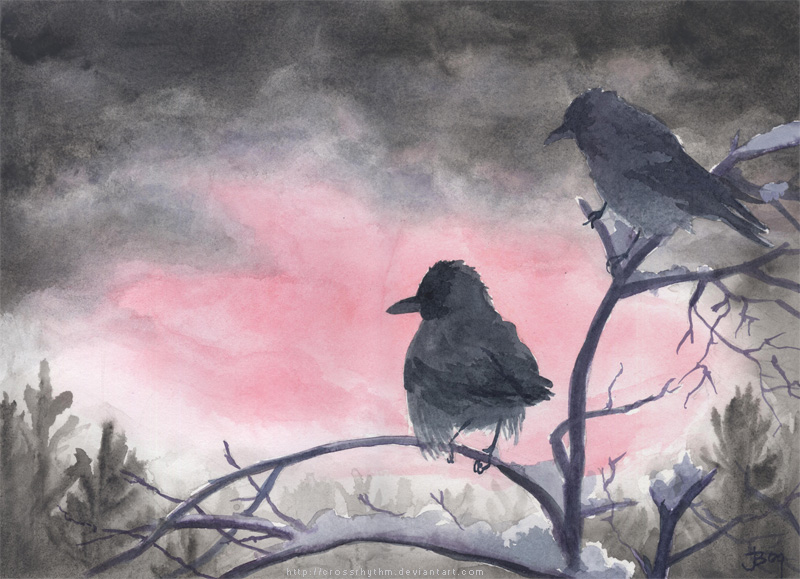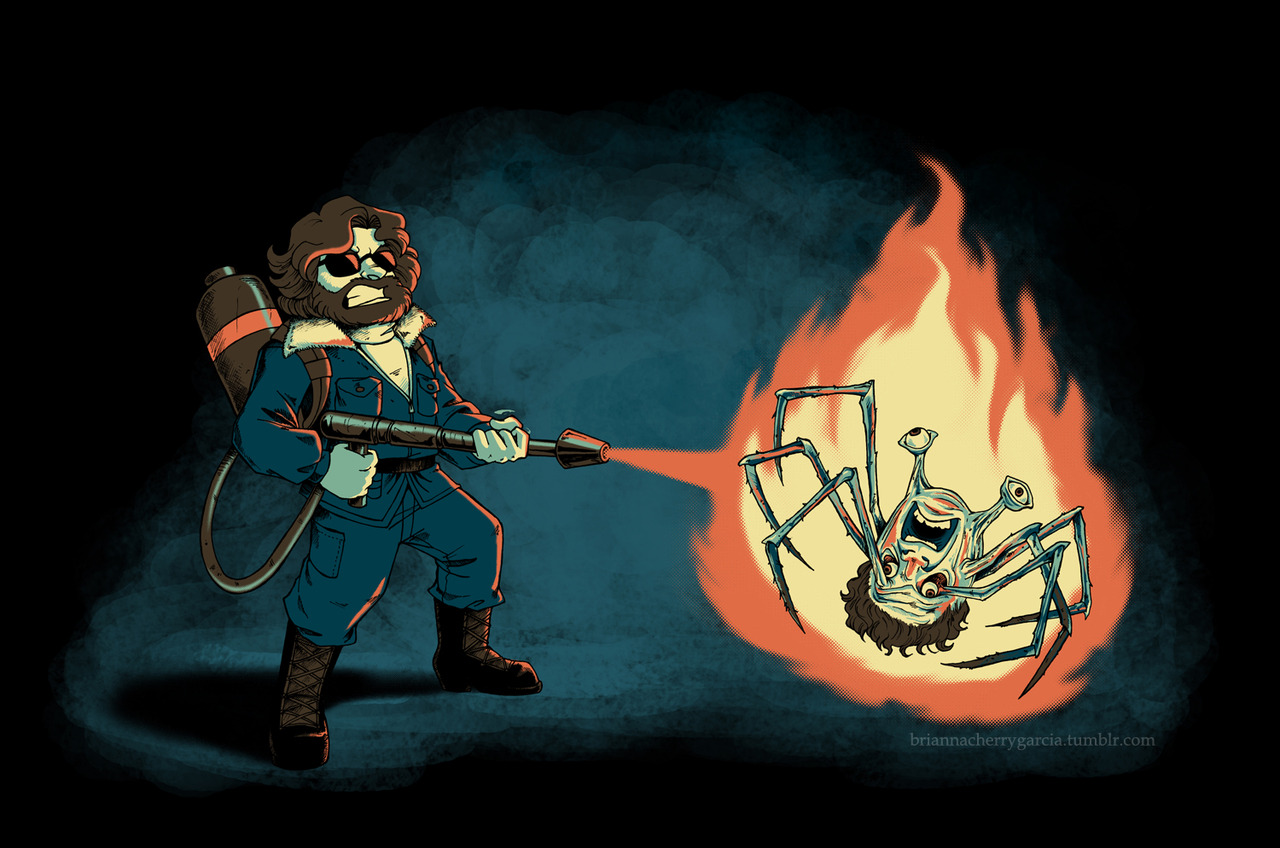A nonsequence is a consequence that isn't. A point that has none. A question, "Why did you tell me that?"
Nonsequences will burn your plot in the eyes of everyone but the most forgiving readers. There are also the kind of writers who read a book for its failing value, wanting to know firsthand how not to do it, but let's forget about us for now. What? Oh, yeah. Sure, I meant to say them. I'll be honest with you, it's kind of funny and really sad how the practical use of a word that isn't even a word can have such tremendous effect on your writing.
Allow me to present you with an anecdote of my childhood, an example of consequence after which a point will be made. I hope you'll enjoy the show. I sure didn't.
I started out young gathering experiences that would put me on the path of a master thief. I cannot tell you when, exactly, I began building for my resumé of crime. Looking back, it appears that stealing was something that I had always done, something as natural to me as not stealing was to others. I stole from everyone: stores, friends, family. And I was good at it. Sufficient poverty, no moral compass to speak of, quick little fingers – I would lie if I told you that I wasn't proud, and at age ten I'd already had my share of apprentices.
I suppose they never had to return their stuff or apologize to anyone.
Ten years old, I already knew that it would be best for a first steal to be done somewhere safe, or at least somewhere that felt safe. A grocery store in the neighborhood, laughable security, firstname basis with the people who worked there. It's easy to steal your way around people who trust you, but it's impossible when your partner in crime suffers from a severe case of Greed. It was a friend who had never stolen anything, as I gathered watching her stuff her pockets with sweets under the disapproving eyes of the cashier, the gaze of an adult she missed as surely as my pleas for discretion. The cashier didn't even bother to say more than, “We'll call your mother,” and let us walk out with everything we had taken.
My friend had done nothing the way I had told her, but it must have been a relief for her to tell everyone about how I had masterminded the plan and bullied her into following along. I will agree with you that, yes, it is weird that I call my successes “apprentices” and my one failure “friend,” but you don't want to go on a crime spree with a friend anyway. They think you'll forgive them anything.
As promised, the store people did call my mother, and after about four hours of her lying to me (“It's okay, everyone makes mistakes. You can tell me.”) I revealed to her the location of my hidden stash. Yelling ensued (“Do you have any idea how that makes me look? Did you even think about it?” Must have been a rhetorical question at this point in our relationship) as well as weeks of house arrest, pocket money deprivation, some more yelling just in case I had glued my ears shut the first time, and worst of all: I had to take the stuff I had stolen from that particular grocery store, return it, and apologize to the manager.
I hated it. I hated consequences. Consequences suck. For real.
Still with me? Nice. So, why did I tell you that? Because I am writing about writing, and I am writing about nonsequences, and I would like to tell you that, when you write a plot, the actions your characters undertake must always have consequences instead. My little anecdote up there? I stole alone, I stole with partners, I got caught – if I hadn't been caught, if there hadn't been a response to my actions, I wouldn't have told you the story; there would have been no point.
It's comforting in real life to get away with a lie, with stealing, with whatever you shouldn't do but have done. In stories, detection of the lie, the stealing, the shouldn't-have-dones add spice and conflict on any level you wish. It may be a moral of a story, a pun, something to prove an argument, whichever. They can turn it all around.
Consequences are great because they work and you can apply them in many different ways. Nonsequences make everything seem unnecessary.
“Why did the Mage make a deal with the Demon in order to kill the Knight when it wasn't really about the Mage but the Usurper hunting the Queen in whose employ the Knight finds himself, with the Mage tragically being the Writer's only idea on how the Usurper can follow the Queen, then giving the Mage a stab at killing the Knight and making them fail, rendering their existence and peril nil because of course?”
You know, kind of like that. If a question like the one above is asked, you have already blundered leading up to this point in the story. You don't want any of your readers to formulate a question as complicated as that; it shows how many trenches you have dug into your story.
The Mage, an inconsequential character your readers don't care about, is carrying the important bit – the inner conflict about having dealt with the Demon to kill the Knight – just in order to help the real plot along (the Usurper on the heels of the Queen). The Mage is never supposed to get their revenge because the Knight is needed. This is action without consequence. This is nonsequence because the important characters don't have to deal with it and you devised it so.
In essence, nonsequence makes people wonder why you bothered writing about what you have written about in the first place. They will be puzzled because you didn't deliver emotional anything.
You kill it with fire. Or with "delete." In my experience, "delete" works just fine as well. I am deleting a lot and there are times when I wish I wouldn't have to. Sometimes I have a brilliant idea, the only problem being that it doesn't work out in any of the ways ideas might not work out. Sometimes it's not so much a problem with story or nonsequence, but placement. There was this one paragraph I was in love with and I deleted it for the simple reason of it disrupting the reading flow. Nonsequence is a much graver misstep.
See, nonsequences mean that they don't do your protagonists any good. They may be grazed by the effects of it, but it's not like they would be travelling from point A to point B because of it. Show them no mercy and above all: show your characters no mercy. Let the important people bear the brunt of the consequences in a way that advances your story to its peak. Don't clutter your pages with nonsense that has no reason to be there. I'm a broken record on this one, but I will still say it: if it works, it works. If it doesn't, it has to go.
Nonsequences will burn your plot in the eyes of everyone but the most forgiving readers. There are also the kind of writers who read a book for its failing value, wanting to know firsthand how not to do it, but let's forget about us for now. What? Oh, yeah. Sure, I meant to say them. I'll be honest with you, it's kind of funny and really sad how the practical use of a word that isn't even a word can have such tremendous effect on your writing.
Allow me to present you with an anecdote of my childhood, an example of consequence after which a point will be made. I hope you'll enjoy the show. I sure didn't.
One Can Never Start Too Early
I started out young gathering experiences that would put me on the path of a master thief. I cannot tell you when, exactly, I began building for my resumé of crime. Looking back, it appears that stealing was something that I had always done, something as natural to me as not stealing was to others. I stole from everyone: stores, friends, family. And I was good at it. Sufficient poverty, no moral compass to speak of, quick little fingers – I would lie if I told you that I wasn't proud, and at age ten I'd already had my share of apprentices.
I suppose they never had to return their stuff or apologize to anyone.
Ten years old, I already knew that it would be best for a first steal to be done somewhere safe, or at least somewhere that felt safe. A grocery store in the neighborhood, laughable security, firstname basis with the people who worked there. It's easy to steal your way around people who trust you, but it's impossible when your partner in crime suffers from a severe case of Greed. It was a friend who had never stolen anything, as I gathered watching her stuff her pockets with sweets under the disapproving eyes of the cashier, the gaze of an adult she missed as surely as my pleas for discretion. The cashier didn't even bother to say more than, “We'll call your mother,” and let us walk out with everything we had taken.
My friend had done nothing the way I had told her, but it must have been a relief for her to tell everyone about how I had masterminded the plan and bullied her into following along. I will agree with you that, yes, it is weird that I call my successes “apprentices” and my one failure “friend,” but you don't want to go on a crime spree with a friend anyway. They think you'll forgive them anything.
As promised, the store people did call my mother, and after about four hours of her lying to me (“It's okay, everyone makes mistakes. You can tell me.”) I revealed to her the location of my hidden stash. Yelling ensued (“Do you have any idea how that makes me look? Did you even think about it?” Must have been a rhetorical question at this point in our relationship) as well as weeks of house arrest, pocket money deprivation, some more yelling just in case I had glued my ears shut the first time, and worst of all: I had to take the stuff I had stolen from that particular grocery store, return it, and apologize to the manager.
I hated it. I hated consequences. Consequences suck. For real.
Consequences Are Awesome!
Still with me? Nice. So, why did I tell you that? Because I am writing about writing, and I am writing about nonsequences, and I would like to tell you that, when you write a plot, the actions your characters undertake must always have consequences instead. My little anecdote up there? I stole alone, I stole with partners, I got caught – if I hadn't been caught, if there hadn't been a response to my actions, I wouldn't have told you the story; there would have been no point.
It's comforting in real life to get away with a lie, with stealing, with whatever you shouldn't do but have done. In stories, detection of the lie, the stealing, the shouldn't-have-dones add spice and conflict on any level you wish. It may be a moral of a story, a pun, something to prove an argument, whichever. They can turn it all around.
Consequences are great because they work and you can apply them in many different ways. Nonsequences make everything seem unnecessary.
“Why did the Mage make a deal with the Demon in order to kill the Knight when it wasn't really about the Mage but the Usurper hunting the Queen in whose employ the Knight finds himself, with the Mage tragically being the Writer's only idea on how the Usurper can follow the Queen, then giving the Mage a stab at killing the Knight and making them fail, rendering their existence and peril nil because of course?”
You know, kind of like that. If a question like the one above is asked, you have already blundered leading up to this point in the story. You don't want any of your readers to formulate a question as complicated as that; it shows how many trenches you have dug into your story.
The Mage, an inconsequential character your readers don't care about, is carrying the important bit – the inner conflict about having dealt with the Demon to kill the Knight – just in order to help the real plot along (the Usurper on the heels of the Queen). The Mage is never supposed to get their revenge because the Knight is needed. This is action without consequence. This is nonsequence because the important characters don't have to deal with it and you devised it so.
In essence, nonsequence makes people wonder why you bothered writing about what you have written about in the first place. They will be puzzled because you didn't deliver emotional anything.
What To Do About It When It Happens
You kill it with fire. Or with "delete." In my experience, "delete" works just fine as well. I am deleting a lot and there are times when I wish I wouldn't have to. Sometimes I have a brilliant idea, the only problem being that it doesn't work out in any of the ways ideas might not work out. Sometimes it's not so much a problem with story or nonsequence, but placement. There was this one paragraph I was in love with and I deleted it for the simple reason of it disrupting the reading flow. Nonsequence is a much graver misstep.
See, nonsequences mean that they don't do your protagonists any good. They may be grazed by the effects of it, but it's not like they would be travelling from point A to point B because of it. Show them no mercy and above all: show your characters no mercy. Let the important people bear the brunt of the consequences in a way that advances your story to its peak. Don't clutter your pages with nonsense that has no reason to be there. I'm a broken record on this one, but I will still say it: if it works, it works. If it doesn't, it has to go.
Dream. Play. Stay strong.
And TVTropes.
And TVTropes.





















